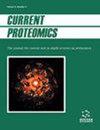Cytotoxic and Apoptotic Effect of Iris taochia Plant Extracts on Human Breast Cancer (MCF-7) Cells
IF 0.5
4区 生物学
Q4 BIOCHEMICAL RESEARCH METHODS
引用次数: 0
Abstract
Iris taochia is an endemic plant in Turkey. Iris species has many biological effects such as antibacterial, antiinflammatory, antioxidant and anticancer properties. Apoptosis is a programmed cell death and this mechanism regulates the death of cancer cells. The aim of our work is to investigate how the Iris taochia extracts affect the apoptotic activity in the MCF7 cells. Cytotoxic dose and cell viability is determined by the MTT assay. Bad, Bax, Bcl-2, Bcl-W, Bid, Bim, Caspase 3, Caspase 8, CD40, CD40L, cIAP-2, CytoC, DR6, Fas, FasL, HSP27, HSP60, HSP70, HTRA, IGF-I, IGF-II, IGFBP-1, IGFBP-2, IGFBP-3, IGFBP-4, IGFBP-5, IGFBP-6, IGF-1sR, Livin, p21, p27, p53, SMAC, Survivin, sTNF-R1, sTNF-R2, TNF-α, TNF-β, TRAILR-1, TRAILR-2, TRAILR-3, TRAILR-4 and XIAP proteins were measured by the membrane array kit. Iris taochia extracts exhibited significant cytotoxic effects on MCF7 cells and IC50 values ranging from 1.56 to 100 μg/mL. Our results indicate that MeOH extract of Iris taochia in MCF7 cells may be a regulator of cell death proteins, cell cycle and growth factors. DCM and EtOH extracts of Iris taochia have a limited effect on MCF7 cells. Especially, HSPs, which play a significant role in chemoresistance downregulating DCM and EtOH extracts of Iris taochia, whereas ligands and receptors of extrinsic apoptotic pathway are upregulated by these extracts. This is the first study to investigate the cytotoxic and apoptotic effect of Iris taochia extracts on MCF7 cells. Results also showed that Iris taochia reduced cell viability and induced apoptotic pathways as a potential regulator of cancer cell death.桃红鸢尾提取物对人乳腺癌(MCF-7)细胞的细胞毒性和凋亡作用
鸢尾是土耳其的一种特有植物。鸢尾具有抗菌、抗炎、抗氧化、抗癌等多种生物学作用。细胞凋亡是一种程序性的细胞死亡,它调节着癌细胞的死亡。本研究旨在探讨鸢尾提取物对MCF7细胞凋亡活性的影响。MTT法测定细胞毒性剂量和细胞活力。采用膜阵列试剂盒检测Bad、Bax、Bcl-2、Bcl-W、Bid、Bim、Caspase 3、Caspase 8、CD40、CD40L、cIAP-2、CytoC、DR6、Fas、FasL、HSP27、HSP60、HSP70、HTRA、IGF-I、IGF-II、IGFBP-1、IGFBP-2、IGFBP-3、IGFBP-4、IGFBP-5、IGFBP-6、IGF-1sR、Livin、p21、p27、p53、SMAC、Survivin、sTNF-R1、sTNF-R2、TNF-α、TNF-β、TRAILR-1、TRAILR-2、TRAILR-3、TRAILR-4、XIAP蛋白。鸢尾花提取物对MCF7细胞具有显著的细胞毒作用,IC50值为1.56 ~ 100 μg/mL。结果提示桃红虹膜MeOH提取物对MCF7细胞可能具有调节细胞死亡蛋白、细胞周期和生长因子的作用。桃红鸢尾DCM和EtOH提取物对MCF7细胞的影响有限。特别是在化学耐药中起重要作用的HSPs下调桃红虹膜DCM和EtOH提取物,而这些提取物上调外源性凋亡途径的配体和受体。本研究首次探讨鸢尾提取物对MCF7细胞的细胞毒性和凋亡作用。结果还表明,桃红鸢尾可降低细胞活力,诱导细胞凋亡通路,作为癌细胞死亡的潜在调节剂。
本文章由计算机程序翻译,如有差异,请以英文原文为准。
求助全文
约1分钟内获得全文
求助全文
来源期刊

Current Proteomics
BIOCHEMICAL RESEARCH METHODS-BIOCHEMISTRY & MOLECULAR BIOLOGY
CiteScore
1.60
自引率
0.00%
发文量
25
审稿时长
>0 weeks
期刊介绍:
Research in the emerging field of proteomics is growing at an extremely rapid rate. The principal aim of Current Proteomics is to publish well-timed in-depth/mini review articles in this fast-expanding area on topics relevant and significant to the development of proteomics. Current Proteomics is an essential journal for everyone involved in proteomics and related fields in both academia and industry.
Current Proteomics publishes in-depth/mini review articles in all aspects of the fast-expanding field of proteomics. All areas of proteomics are covered together with the methodology, software, databases, technological advances and applications of proteomics, including functional proteomics. Diverse technologies covered include but are not limited to:
Protein separation and characterization techniques
2-D gel electrophoresis and image analysis
Techniques for protein expression profiling including mass spectrometry-based methods and algorithms for correlative database searching
Determination of co-translational and post- translational modification of proteins
Protein/peptide microarrays
Biomolecular interaction analysis
Analysis of protein complexes
Yeast two-hybrid projects
Protein-protein interaction (protein interactome) pathways and cell signaling networks
Systems biology
Proteome informatics (bioinformatics)
Knowledge integration and management tools
High-throughput protein structural studies (using mass spectrometry, nuclear magnetic resonance and X-ray crystallography)
High-throughput computational methods for protein 3-D structure as well as function determination
Robotics, nanotechnology, and microfluidics.
 求助内容:
求助内容: 应助结果提醒方式:
应助结果提醒方式:


